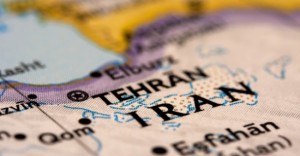Is this Déjà vu?
via Lobe Log
 I am hearing the drumbeats of war again. They sound so much like the drumbeats of 2002 that I have to wonder whether the old drummers have been brought out of storage to play the same music to a new audience.
I am hearing the drumbeats of war again. They sound so much like the drumbeats of 2002 that I have to wonder whether the old drummers have been brought out of storage to play the same music to a new audience.
This time the drums are directed at Iran. Surely, the Iranian leadership has not done their people any good with their arrogant defiance and bellicosity in the face of potential massive firepower from the other side. They have also made the situation much worse with some of their comments about Israel, the United States, NATO and others. The Iranian outreach to Hugo Chavez and other unseemly dictators has not helped their cause. Nor has their cause been helped by their interferences in Bahrain, Syria, Lebanon and more. Threatening to close the Strait of Hormuz ratcheted things up. Having fast boats play chicken with warships that could take out the entire coastline of Iran has not been a smart thing to do. Being ambiguous and cagey about their nuclear program gives a lot of verbal ammunition to their enemies.
Indeed, the situation does not look good. The increasing storms in Syria, Iraq, Lebanon, northern Saudi Arabia and Southeastern Turkey could whip up even more trouble in the region.
What are the drums calling for? It seems they are calling for ostensibly tougher sanctions on Iran. However, some of them are calling for the sanctions to be placed in the dustbin of history followed by an attack on Iran.
What do these drums tell us about what might happen after the sorties have attacked Iran? Not much. That part of the percussion piece is almost absent, much like “after Saddam” was barely considered since war on Iraq was seen as a “cakewalk”, “costing $100 billon dollars at most”, and a “slam dunk”.
A strike on Iran will not stop at the strike. Iran will respond. It may even respond globally, according to statements from elements of Iran’s leadership. They could easily respond in Iraq, Syria, Lebanon, Bahrain, and beyond. They could have their sleepers go kinetic in Europe, Latin America and more. They could counterstrike on the oil fields and facilities of other Gulf countries.
Iran could help turn the Strait of Hormuz into a battlefield even if they could not shut it down physically. The price of oil could skyrocket to $250 to $350 per barrel. The world could be plunged into a deeper recession than what happened after 2008.
The world economy is fragile as it is. Ask any Greek, Spaniard, Portuguese, Irish person or Italian. Ask anyone in the US who knows about the potential fiscal cliff, and the possible follow-on recession.
The scenarios of this war could work up massive oil price spikes that could end up producing “new” oil price levels in the medium runs if major facilities and fields are significantly damaged. Then there is the potential nuclear fallout from the attack on Iran that so few want to even whisper about, or even know about.
The drums I am hearing are calling for war. Those playing them don’t seem to want to think about what is on the other side of an attack or, even worse, what a war that protracts and pulls others into it could look like.
Sunni-Shia tensions point to the chances that many could be pulled in. Other factors on the ground in Iran, other Gulf States, the Eastern Mediterranean and more point to a potential disaster than many could hardly imagine at this moment.
How many of those who pushed for war imagined that we would still be in Afghanistan today? Did they predict then, the thousands of lives that have been lost and damaged in Iraq?
War is uncertain. War is much more about fog, blood, pain and shattered lives than armchair strategic thinking. War is about people. It is about young men and women being put in harm’s way and coming back damaged, or not coming back at all.
I am not a pacifist. Sometimes wars are needed. However, I am someone who after decades of studying, living in, working in and worrying about the Middle East and North Africa, can see a potentially massive storm of epic proportions resulting if more missteps are taken.
I cannot sit quietly and idly as the storm builds.
If I don’t speak and write what I believe is the truth to power then I am a failure. I do not intend to be so.
- Paul Sullivan is an internationally recognized expert on security issues including energy security, water security and food security in the Middle East and North Africa. He is an economist by training and a multidisciplinary public intellectual by choice. He is an Adjunct Professor of Security Studies at Georgetown University.
En Español
The Latest
 From IPS News
From IPS News- Climate Crisis in Mountains: Borderless Struggle for Frontline Communities
- Niger’s Military Coup Triggers Child Marriages, Sex Work in Neighboring Countries
- Gaza Teetering on the Brink of Mass Starvation
- Harnessing Science-Policy Collaboration: The Vital Role of IPBES Stakeholders in Achieving Global Nature Targets
- AI Policy Can’t Ignore Climate Change: We Need Net Zero AI Emissions
- Conditions Worsen for Belarus Migrants Stuck in ‘Death Zone’ on EU Border
- Another Climate Victory in Europe… and Counting
- By Sending Nuclear Weapons to UK, Could US be Fueling Nuclear Proliferation?
- Small Island States Fostering Effective Energy Transition To Achieve a Blue Economy
- Attacks on UNRWA Not About Its Neutrality, Says UNRWA Chief
- Online fundraising for IPS Inter Press Service at Razoo













